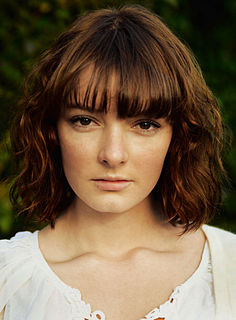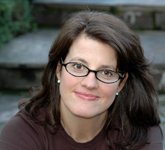A Quote by J. D. Salinger
What I like best is a book that's at least funny once in a while. What really knocks me out is a book that, when you're all done reading it, you wish the author that wrote it was a terrific friend of yours and you could call him up on the phone whenever you felt like it. That doesn't happen much, though.
Related Quotes
Reading a book, for me at least, is like traveling in someone else's world. If it's a good book, then you feel comfortable and yet anxious to see what's going to happen to you there, what'll be around the next corner. But if it's a lousy book, then it's like going through Secaucus, New Jersey -- it smells and you wish you weren't there, but since you've started the trip, you roll up the windows and breathe through your mouth until you're done.
I'm still happy with the way Einstein's Dreams came out. That book came out of a single inspiration. I really felt like I was not creating the words, that I was hearing the words. That someone else was speaking the words to me and I was just writing them down. It was a very strange experience. That can happen with a short book. I don't think it could happen with a long book.
Sometimes I'll say, "I wrote that book," and the person will look at you as if you're really strange. One time that happened to my daughter on a plane. She was sitting next to a girl who was reading one of my books and my daughter said, "My mother wrote that book." And the girl started to quiz my daughter, asking her all sorts of questions, like what are the names of Judy's children and where did she grow up. My daughter thought it was so funny.
In Africa, when you pick up a book worth reading, out of the deadly consignments which good ships are always being made to carry out all the way from Europe, you read it as an author would like his book to be read, praying to God that he may have it in him to go on as beautifully as he has begun. Your mind runs, transported, upon a fresh deep green track.
No one really knows the value of book tours. Whether or not they're good ideas, or if they improve book sales. I happen to think the author is the last person you'd want to talk to about a book. They hate it by that point; they've already moved on to a new lover. Besides, the author never knows what the book is about anyway.
I didn't really like reading much before I did 'The Golden Compass'. But then my teacher told me to read it. And I thought, 'Oh God, I'm going to have to read a whole book by myself!' It's not that I couldn't read, it's just that I didn't really like books very much. But the book that she lent me I really enjoyed.
Reading a book should be a conversation between you and the author. Presumably he knows more about the subject than you do; if not, you probably should not be bothering with his book. But understanding is a two-way operation; the learner has to question himself and question the teacher, once he understands what the teacher is saying. Marking a book is literally an expression of your differences or your agreements with the author. It is the highest respect you can pay him.
My readers often say to me, 'If we lived next door to each other, we'd be best friends.' That is precisely what I wanted to say to smart, funny, self-effacing Ellen McCarthy after I finished reading The Real Thing. I loved every lesson laid out in a book that wouldn't dare to call itself a field guide to marriage but amounts to as much on every page. This is a deeply useful little book.
After the novel was published, I came to feel that I couldn't call myself Orthodox anymore. It's so patriarchal, anti-women, anti-gay. There was something about writing 'Disobedience'... it felt like I had put it all in the book. I had done my best by it, recorded what it meant for me. I felt I was done.





































